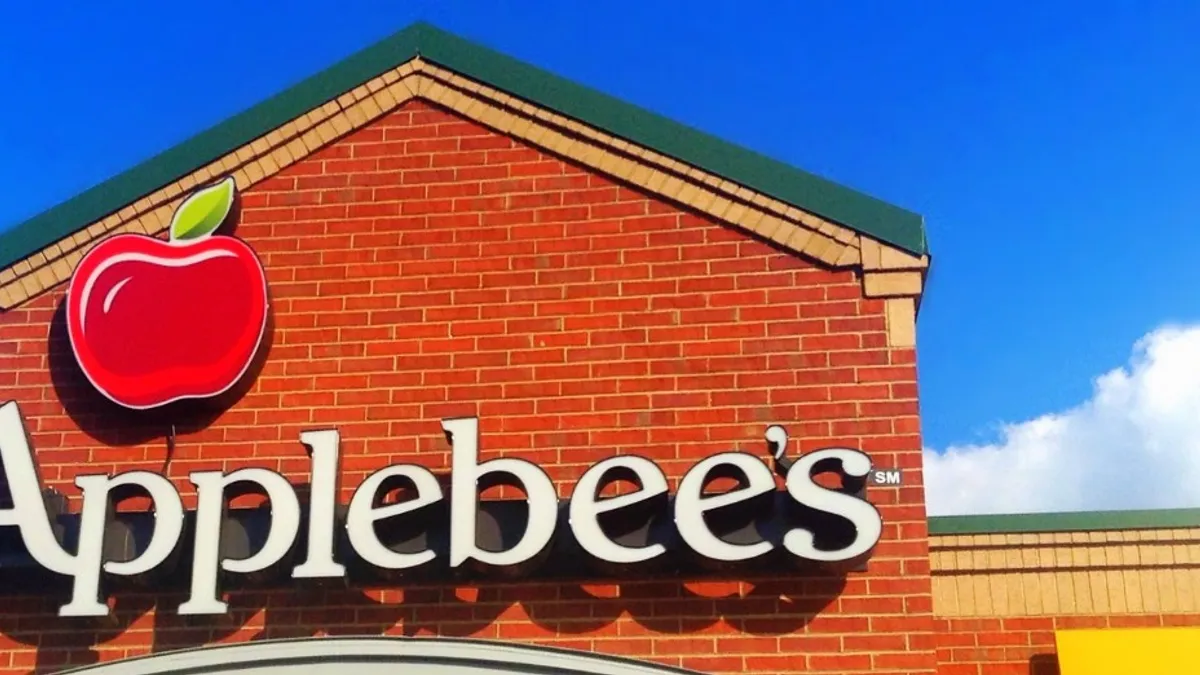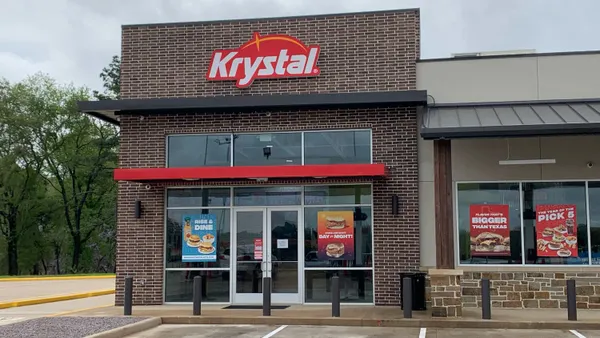Dive Brief:
- Applebee's franchisee, Wisconsin Apple, filed for Chapter 11 bankruptcy on Oct. 14 following the impact of COVID-19 and a complete shutdown of its 25 locations during the height of the pandemic in March.
- The company’s revenue is about 30% of what it received from November 2019 to March 2020, Seenu Kasturi, managing member of Wisconsin Apple, said in a Monday court filing. While the company reopened its restaurants in May, it still faced periodic closures to fumigate after employees tested positive for COVID-19 and to retest employees at the restaurant, Kasturi said.
- Restaurant franchisees have been particularly hard hit during the pandemic, since many are small and midsize businesses lacking significant capital to weather an economic downturn. Pizza Hut and Wendy's franchisee NPC International declared bankruptcy during the summer while IHOP franchisee CFRA Holdings, which filed for Chapter 11 in May, sold 41 of its 49 locations to Sun Holdings last week.
Dive Insight:
Applebee's parent company Dine Brands provided financial support to franchisees during Q2 2020, offering deferrals of royalty and advertising payments in March and April, executives told investors during an earnings call. But the extent of the economic crisis, inconsistent regulations over dining room restrictions and a spike in positive cases are taking a toll on operators.
Appleebee's comp sales were down 70.4% in April and down 54.1% in May following temporary closures and a switch to off-premise, John Cywinksi, Applebee’s president, said during the call. June sales recovered some to a negative 29.3%.
While Wisconsin Apple received funding from the federal government through various loan programs, it fell behind in its payments to its creditor Bremer Bank after March, which financed the company's acquisition of the 25 units in November 2019, Kasturi said in the Monday filing. The franchisee had been turning the operations around, improving operational grades into the upper range of Applebee's franchise operations from low grades, Kasturi said.
The company entered into a forbearance agreement with Bremer, making payments of over $255,000 in August and September, but it was still losing $250,000 to $300,000 per four-week period, Kasturi said. On Oct. 13, the company received notification that a receiver was appointed, meaning its assets were at risk of being liquidated. While Chapter 11 wasn't initially the plan, the franchisee filed so that its restaurants could stay open and continue to employ 600 staff members.
But even under bankruptcy protection, the franchisee is not out of the woods, especially with a spike in COVID-19 cases in October. Wisconsin's daily positive COVID-19 cases rose to over 7,000 on Oct. 19 after largely remaining below 4,000 for the better part of the year. The company has had employees in two locations test positive, which led to temporary closures of those stores this month, Kasturi said.
While the company is in the final stages of negotiating a debtor-in-possession loan, which will allow restaurants to stay open and bridge cash flow until it breaks even or a sale, the spike could make it difficult for Wisconsin Apple to keep dining rooms open, further complicating its plans, especially if it keeps having to temporarily close locations.














